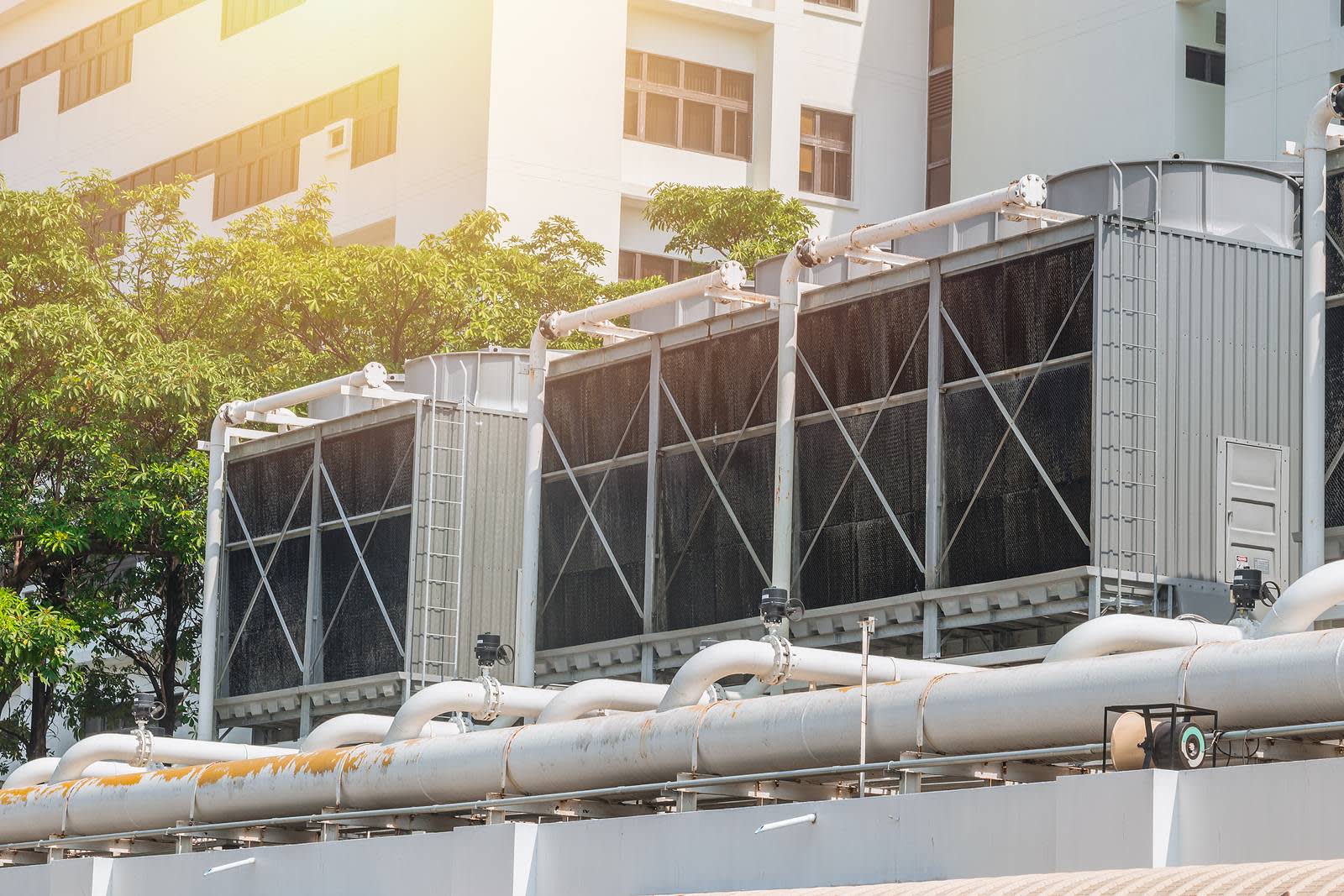How heat pumps can help decarbonise the UK – and your organisation
Almost one fifth of the UK’s carbon emissions are caused by heating buildings. Decarbonising your organisation with heat pumps could help you cut costs and support demand flexibility too.

What do heat pumps do?
Heat pumps extract the existing warmth in the air, ground or water surrounding your building. They then use it to heat your premises.
How do heat pumps work?
There are several different kinds of heat pumps, but all work by drawing existing heat from their surroundings.
Air Source Heat Pumps (ASHPs) take heat from the air using a powerful system of fans. Ground Source Heat Pumps (GSHPs) take heat from the earth using coiled pipes or a borehole.

Can heat pumps help with demand flexibility?
All heat pumps use power to condense the heat they’ve extracted and bring it into your building. By partnering with a flexibility provider – such as Drax – heat pumps can be turned down when electricity demand and prices are high, either manually or through an automated process.
Optimising your heat pump can help generate additional income through flexibility markets and can support efforts to increase demand flexibility as we decarbonise the grid.
Are heat pumps efficient?
Heat pumps produce more heat than the electricity they use, so they’re more efficient than other heating methods. The amount of heat they produce for each unit of electricity they use is known as the Coefficient of Performance (CoP). So, if you buy a heat pump which has a CoP of 3.0, then each unit of electricity it consumes will produce three units of heat.
Are heat pumps a lower-cost option?
Heat pumps let you benefit from free heat. And because they extract heat from their surroundings rather than generating it, heat pumps use much less energy than traditional fossil fuel or even hydrogen boilers. This means they can help your business save money on operational energy costs at the same time as helping to reduce your carbon emissions.
If you combine a heat pump with your own on-site renewable power and batteries, then you can reduce your costs and emissions even further. This could also help support demand flexibility even more.
You could even profit from heat pumps by optimising the way your organisation uses electricity.
Heat pumps – the pros and cons
| Pros | Cons |
|---|---|
| Lower running costs than boiler-powered heating Because they absorb heat from their surroundings, heat pumps are much more efficient than boilers. This means they use – and you need to pay for – less energy to run. |
Upfront investment Heat pumps are more expensive to install than conventional boilers. Although these extra costs can be offset against lower energy costs over the lifetime of the system. Increasingly there are finance packages available to spread the cost over a longer period. |
| Less maintenance Compared with gas boilers, which need regular servicing by a qualified engineer, heat pumps require less maintenance. |
More complicated installation All heat pumps require a well-designed system that matches their operating parameters. A good designer will know what to do. GSHP in particular can require significant building work. |
| Safer Because they don’t burn fuel, there is a much lower risk of explosion with a heat pump. |
May require planning permission In Wales and Northern Ireland, heat pump installations currently require planning permission. In England and Scotland, they may do, depending on your project. Your installation partner can help you with this. Generally, heat pump installations are looked upon favourably by planners. |
| Lower carbon emissions Although they do require some electricity to run, heat pumps use much less energy than boiler-powered heating systems. Consequently, they produce far lower carbon emissions – especially when using renewable electricity and natural refrigerants. |
|
| Can provide cooling Some heat pumps can reverse their cycle and cool your buildings when the weather is hot. |
|
| Can help with demand flexibility When working with a flexibility partner, heat pumps can turned down or off at periods of peak demand, supporting demand flexibility and generating additional revenue from flexibility markets. |
A heat pump in action
At Drax, we’re helping a farm in Scotland optimise a commercial 380 kWh Ground Source Heat Pump. This is designed to provide low temperature heating and cooling for the farm’s produce stores. We’ve now installed equipment that means the heat pump system is turned down automatically when it’s beneficial for the client – such as when electricity prices rise.
In this way, the farm can carry on its core business without any disruption. But when the time is right, they can ‘switch off’ their demand and profit from the electricity flexibility market.
Save 10% on heat pumps
Thanks to our partnership with Clade, Drax customers can save 10% on the cost of purchasing a heat pump, on top of additional savings from Drax’s optimisation services.
Click below to learn more about our partner offers.
Explore this topicDisclaimer
We’ve used all reasonable efforts to ensure that the content in this article is accurate, current, and complete at the date of publication. However, we make no express or implied representations or warranties regarding its accuracy, currency or completeness. We cannot accept any responsibility (to the extent permitted by law) for any loss arising directly or indirectly from the use of any content in this article, or any action taken in relying upon it.

